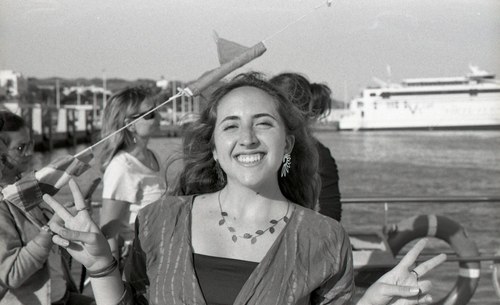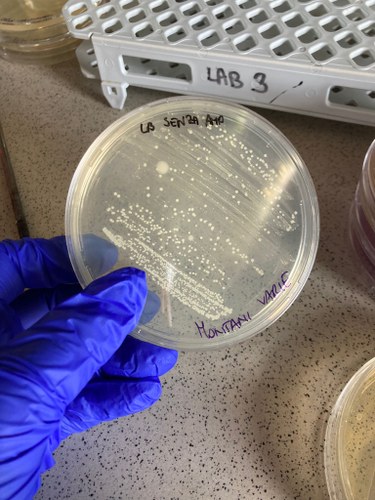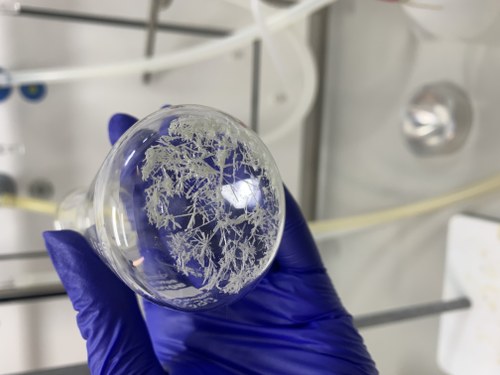Sofía Trujillo is a Student Ambassador from Bogotá, Colombia, studying Biotechnology in her third year at the University of Bologna.
Published on 10 February 2025 | South America

Hi! My name is Sofía. I am a third-year Biotechnology student from Bogotá, Colombia. Although I was born and raised in Colombia, my family does not follow the traditional Colombian customs. My grandmother is Italian, and she always worked hard to preserve her traditions and keep our family connected to its roots. Growing up, I was constantly surrounded by Italian influences, which helped spark my own love for Italy. Thanks to her, I knew from a young age that I wanted to study there. I attended an Italian school, which allowed me to learn the language and gave me access to the Italian university system. When the time came to choose a university, I discovered several schools offering biotechnology programmes. However, two stood out: the University of Bologna and the University of Padua. I wasn’t sure which one I preferred, so I began researching both to prepare for the admissions process. I learned I needed to take the TOLC test alongside the national exams, which left me nervous as I wasn’t sure how to prepare. I made use of the resources available on the website and completed several practice tests, while also accounting for the time difference to avoid taking the exam at 3 a.m. After submitting my applications, I spent the waiting period researching both universities. While they seemed similar, Bologna stood out for its vibrant cultural and student-friendly atmosphere, making it my top choice. I decided to travel to Italy, and a few days later, I received acceptance letters from both Padua and Bologna!

Over the years, I’ve had to adapt my learning style to meet the demands of my academic responsibilities. I went from studying short notes and working on group projects to reading entire textbooks for exams during “sessione”. One of the most fascinating aspects of my degree has been the laboratory work. Having the opportunity to apply the theory I’ve learned is incredibly helpful, as it deepens my understanding of the material. When I started, I had very little lab experience, but I’ve improved through practice and guidance from many professors—especially the strict ones who constantly challenge you to think critically about your actions.
I arrived in Bologna at 17, eager to start a new chapter. I spent my first few days exploring the city, imagining where I’d attend classes and meet friends. Once classes began, everything fell into place, and I discovered a new side of the city, best enjoyed with friends. It wasn’t always easy, though. I had to learn to navigate everything on my own, and the loneliness of being far from home was hard to ignore. But those challenges helped me grow more resilient, teaching me I could build new friendships, traditions, and a sense of belonging. Sometimes, the best cure for loneliness is a gelato and a stroll through Piazza Maggiore, listening to live music.
The University of Bologna is everywhere in the city, from the AlmaWifi to the university buildings scattered around. I especially enjoy the libraries and study rooms, where students come together, making the experience feel collaborative and communal.
When I first arrived, fresh from Italian school, I didn’t think I needed a language course. But I quickly realized that while I could analyze texts and solve math problems, I struggled with everyday conversations. Over time, I learned the missing vocabulary through classes, friends, and even Google Translate. I also found comfort in knowing I wasn’t alone; many of my “fuorisede” friends faced the same challenges with regional language variations.

One of the hardest challenges I faced in Bologna was finding housing. I expected plenty of options, but instead found boards filled with desperate notes from students. After facing rejection from real estate agencies, I found a small “monolocale” out of fear I wouldn’t find anything else. It was old and far from my classes, but it worked. Later, I found a shared apartment closer to the center and my classes, which made getting around much easier. I now enjoy walking to class, avoiding crowded buses, though I still use them on rainy days or when I'm in a rush.
Looking back, studying in Bologna was the best choice. It opened my eyes to the world, taught me about myself, and helped me connect with my roots. I now have the chance to share the beauty of Colombia with others and learn about different cultures from fellow international students.
I highly recommend studying abroad. It won’t always be easy, but it’s worth the challenge. It broadens your horizons, helps you grow, and provides unforgettable memories.
I would personally recommend this experience to anyone curious about exploring new opportunities and stepping out of their comfort zone. If you’re interested in studying abroad, the most important thing is to make the decision and commit to achieving that goal. It won’t always be easy—there will be emotional challenges, bureaucratic hurdles, and moments of doubt—but it’s an experience that is absolutely worth having at least once in your life. Studying in a different country not only broadens your academic and professional horizons but also allows you to grow personally, gain resilience, and build memories that will stay with you forever.